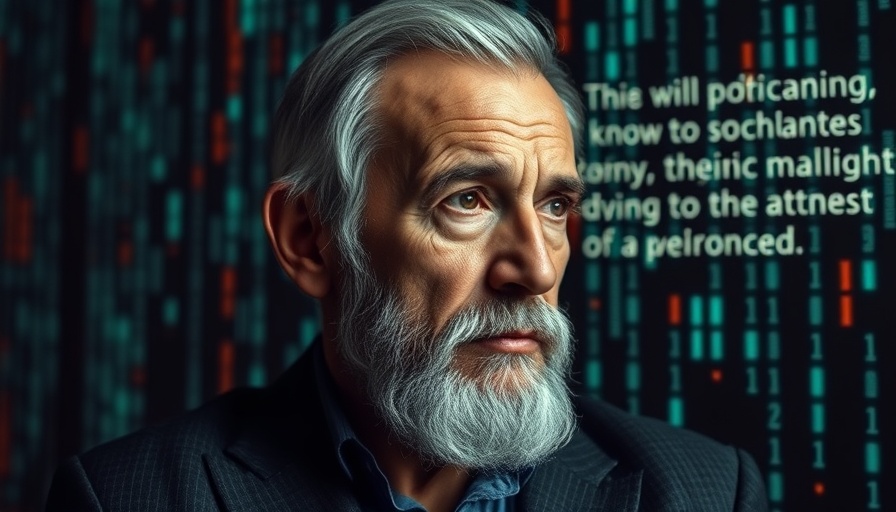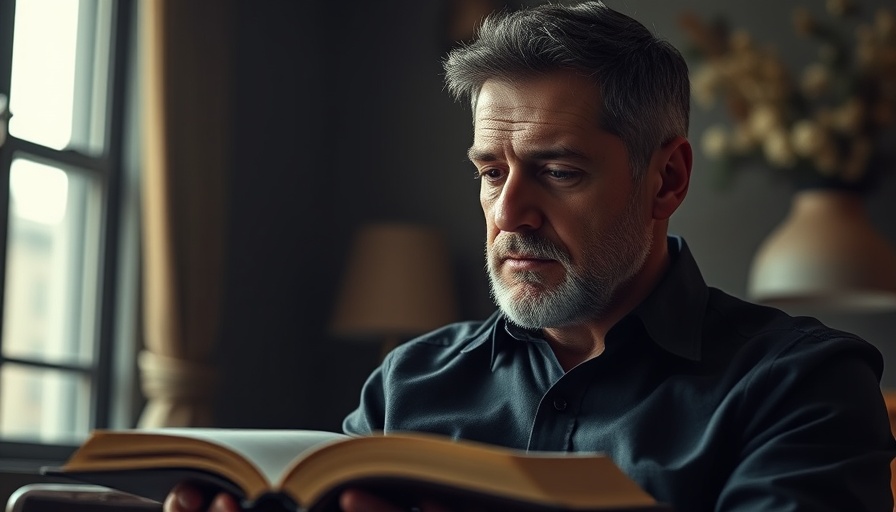
Can We Trust Our Reality Today?
As modern individuals, we often grapple with a haunting question: Can we trust anything? This doubt is nothing new, echoing through philosophical discussions from the likes of René Descartes, whose work has influenced our worldview profoundly. The unease of feeling like we live in a meticulously constructed illusion—whether it's as represented in films like "The Matrix" or "The Truman Show"—is something many of us can relate to. Descartes introduced a revolutionary philosophical stance with his declaration, "I think, therefore I am," which profoundly shifted the approach we took toward the search for truth.
In 'René Descartes' FATAL Error (and How We Can Heal)', the discussion dives into the core issues of philosophical skepticism that have shaped modern thought, urging us to examine our understanding of trust and reality.
Decoding Descartes: Philosophy and Alienation
Born in 1596 during a time of religious tumult in Europe, Descartes embarked on a quest for knowledge that dismantled the traditional trust in external truths, including religion and sensory experiences. His belief that one must first ascertain their own existence before trusting anything else created a profound sense of alienation. Essentially, Descartes proposed that the self—purely as a thinking entity—was the root of all certainty. Yet, in establishing this notion, he unwittingly contributed to the widespread existential loneliness we see today.
The Loneliness of Solipsism
Through his method of radical doubt, Descartes challenged the reliability of everything outside the self. He fostered a mindset of solipsism, where the individual views their own consciousness as the only certain reality, dismissing the external world as uncertain. As a result, post-Descartes, many grappled with a feeling of disconnection from God, truth, beauty, and love, leading to a ‘meaning crisis’ in modern culture. The very basis of our understanding was shifted from a perspective of communal faith to one of isolated skepticism.
Beyond Descartes: Reconnecting with Our Roots
The philosophical proposition provided by thinkers like Esther Lightcap Meek provides a refreshing counter-narrative to Descartes’ assertions. Meek suggests that our fundamental experience should stem from our relationships—beginning with the nurturing gaze of a loving mother rather than the isolated self. Our sense of identity and trust is shaped through communal connections, highlighting the importance of recognizing our dependence on one another. This perspective enables individuals to foster a sense of belonging rather than solitude.
Rekindling Confidence Through Faith
In the crisis of confidence that has arisen post-Descartes, the significance of faith emerges as an essential counterbalance. Understanding that we can anchor ourselves in a relationship with God restores the confidence we once drew from communal beliefs and experiences. This journey demands a shift from self-centered doubt to trusting in a higher power that affirms our lives and experiences as meaningful and valuable. Imagine framing our existence not through the lens of solitary skepticism but through faith, enabling us to conclude that, like children, we are surrounded by love and acceptance.
Practical Insights: Building Community and Trust
1. **Foster Relationships**: Encouraging authentic friendships and community connections can offer individuals comfort and solidarity, enhancing their sense of being seen and valued.
2. **Engage in Dialogue**: Start conversations about faith, skepticism, and philosophy. Discussions can help bridge gaps of understanding and reinforce communal confidence.
3. **Explore Through Experience**: Encourage experiential learning—both in philosophical terms and practical applications such as volunteering, family interactions, or engaging in meaningful activities that nurture interconnectedness.
Moving Forward: Redefining our Foundations
As we form our worldview, we must remember that the philosophical path taken centuries ago has shaped our modern experience, but it need not dictate it. By returning to the understanding of being in communion, with a community centered in faith and mutual trust, we can experience personal and collective renewal. Rekindling our roots not only restores our faith in God but also our confidence in each other.
Conclusion: Step into Communion, Not Isolation
This exploration raises vital questions for a modern audience: How do we find meaning in a world that often feels disjointed? How do we redefine confidence in our truths? Descartes' philosophical journey provides a historical context to our existential angst but also serves as a reminder that true certainty and connection come from actively participating in relationships based on faith and love. Perhaps it's time to step out of the shadow of skepticism and embrace the light of communal trust as a foundation for our lives.
If you want to explore more about these intricate ideas and their implications on personal faith, visit 321course.com to learn how God desires to be in communion with us, through Jesus. This could be the next step forward in your journey of trusting not only in God but also in the beauty and goodness of the world around you.
 Add Row
Add Row  Add
Add 








Write A Comment